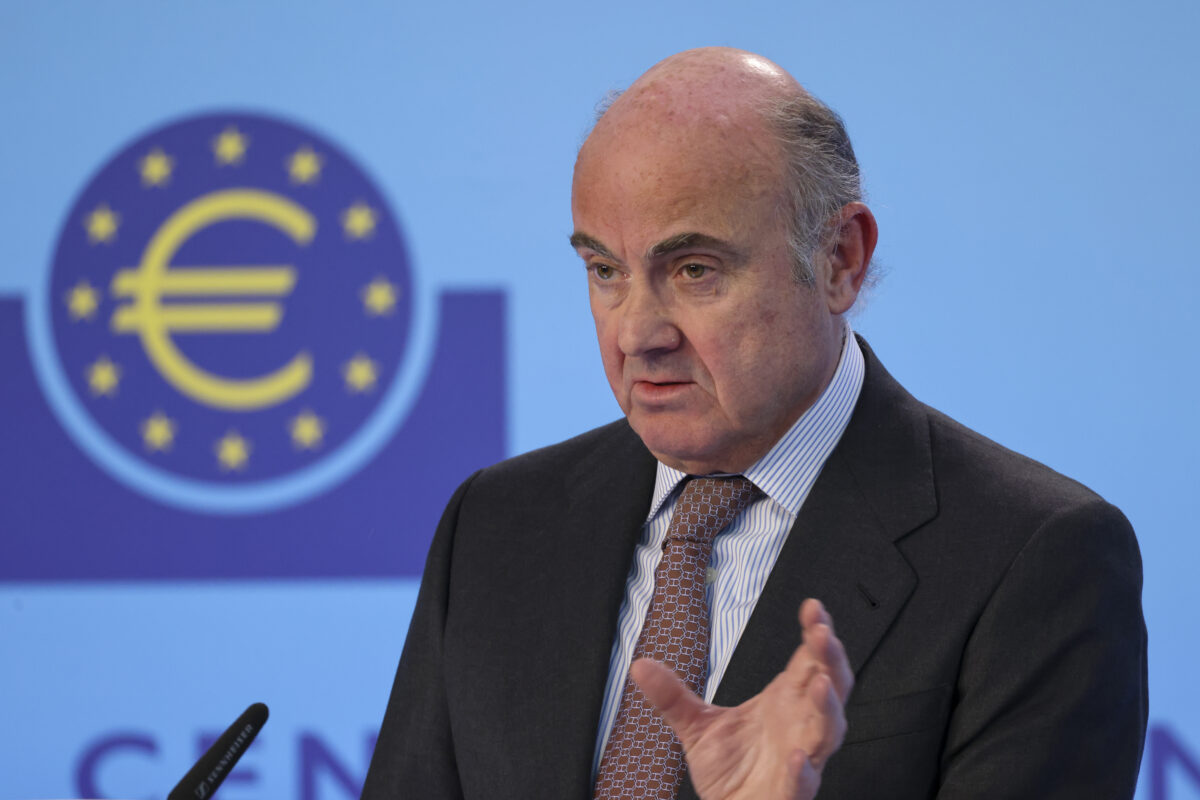FMW-Redaktion
Gestern wurde das Freihandelsabkommen CETA durch die EU und Kanada ratifiziert. Dabei handelt es sich vorläufig um den Teil von CETA, der in die „Hoheitsrechte“ der EU fällt. Für den Rest müssen die nationalen Parlamente noch zustimmen, und Klagen vor dem deutschen Bundesverfassungsgericht müssen noch endgültig entschieden werden. Es hatte vor Kurzem einen einstweiligen Stopp von CETA abgelehnt, muss aber wie gesagt im Hauptverfahren noch entscheiden. All das wird noch Jahre dauern. Aber der Zug ist wohl nicht mehr aufzuhalten.

Das gestrige Abschlussphoto mit Donald Tusk, Jean-Claude Juncker und Justin Trudeau gestern in Brüssel. Foto: EU-Kommission
Was haben die Kritiker und Gegner von CETA erreicht? Die Latte, über die die TTIP-Verhandler springen müssen, liegt jetzt deutlich höher. Jedem EU-Politiker, der mit dem TTIP-Abkommen zwischen EU und USA zu tun hat, ist das klar. „Normale“ Schiedsgerichte, wie sie bei TTIP bisher angedacht sind, werden die USA in der EU niemals durchbekommen. Das hat die Blockade der belgischen Region Wallonie bewiesen: Bei TTIP würde es diverse solcher „Aufstände“ geben. Würde man gegen alle Widerstände TTIP durchdrücken, gäbe es die Quittung bei der nächsten Wahl in Form eines weiter massiven Zustroms in Richtung von Protestparteien!
#CETA signed: the new golden standard in #trade agreements. pic.twitter.com/zdBPsDqOz0
— European Commission 🇪🇺 (@EU_Commission) October 30, 2016
EU – Canada Summit: An historic juncture in our political and economic partnership: https://t.co/xypsgLO2M1 pic.twitter.com/WkCc8f0pcM
— European Commission 🇪🇺 (@EU_Commission) October 30, 2016
CETA & EU-Canada Strategic Partnership Agreement signed! I'm proud to sign our two landmark agreements with Canada. pic.twitter.com/RDGJJeev0j
— Charles Michel (@eucopresident) October 30, 2016
Laut EU-Text wird das bisher mit Kanada angedachte Schiedsgerichtssystem durch ein offiziell staatlich ernanntes Gericht ersetzt, wo die Richter AUCH richtig ernannt werden. Dieses Schiedsgerichtssystem als Ganzes ist aber aus diesem vorläufigen CETA-Vertrag erst einmal ausgenommen, bis alle Mitgliedsstaaten CETA vollständig ratifiziert haben. Auch betont man, dass unter CETA die Teilnehmerländer auch weiterhin Dienstleistungen wie Gesundheit und Bildung so organisieren können, wie sie es wollen. Eigentlich ist die Erwähnung selbst schon der Knaller, oder? Sollte so etwas nicht eigentlich eine Selbstverständlichkeit sein?
Hier die komplette Mitteilung der EU-Kommission im Original:
–
–
Today, President of the European Commission Jean-Claude Juncker, President of the European Council Donald Tusk, Prime Minister of Slovakia Robert Fico, and Canadian Prime Minister Justin Trudeau signed the Comprehensive Economic and Trade Agreement between the EU and Canada (CETA).
The deal will benefit exporters, big and small, creating opportunities for European and Canadian companies and their employees, as well as for consumers. Almost all – 99 percent – of import duties will be eliminated, saving European exporters of industrial goods and agricultural products more than €500 million a year. As the EU’s most advanced and progressive trade agreement to date, CETA is a landmark accord that sets the benchmark for future agreements. It includes the most ambitious chapters on sustainable development, labour and the environment ever agreed upon in bilateral trade agreements. CETA will not solely help boost trade and economic activity, but also promote and protect shared values.
European Commissioner for Trade Cecilia Malmström said: „This is how we can shape globalisation – through progressive, state-of-the-art trade agreements that uphold our values and set new standards for global commerce. Through our agreement with Canada, we build a bridge to one of our closest allies, making a real impact for our exporters, entrepreneurs and employees. Trade simply works, and we know it from experience. When we get rid of unnecessary costs and overlapping bureaucracy, companies will try out new markets and hire more people.“
CETA will also end limitations in access to public procurement, making it possible for EU firms to bid for public contracts – at the federal level as well as in Canada’s provinces, regions and cities. CETA will open up the services market, making it easier for professionals such as engineers, accountants and architects to work in Canada. Canada also recognises the special status of the EU’s Geographical Indications, agreeing to protect a list of more than 140 European goods in Canada, such as Prosciutto di Parma and Schwarzwälder Schinken. A range of goods will have fewer administrative hurdles to jump, avoiding double-testing on both sides of the Atlantic, benefitting smaller companies in particular.
What’s in the text?
CETA will create new opportunities for farmers and food producers, while fully protecting the sensitivities of the EU. The EU’s openings on certain products are limited and calibrated and are balanced out by Canadian openings that satisfy important European exporting interests, such as cheese, wine and spirits, fruit and vegetables, processed products and geographical indications.
It will improve European access to maritime services in Canada and it will protect unique European agricultural products, the so called Geographical Indications.
The EU’s 500 million consumers will also benefit from CETA. The agreement offers greater choice while maintaining current quality standards, as only products and services that fully respect all EU regulations will be able to enter the EU market. This means that CETA will not change the way the EU regulates food safety, including GMO products or the ban on hormone-treated beef.
The current form of investor-state dispute settlement (ISDS) that exists in many bilateral trade agreements negotiated by EU governments, has been replaced with a new and improved Investment Court System. The new mechanism will be a public one and not based on ad hoc tribunals. This reform means that investors can be protected from discrimination in a narrow number of cases, but in a manner which does not leave any room for concern on the right of states to regulate in the public interest.
The procedures of the Investment Court will be transparent and its judges appointed by the EU and Canada.The Commission is committed to completing and refining the reform of investment dispute resolution and the discussions of the past few weeks and days have helped shape that commitment.
Member States will continue to be able to organise public services like healthcare and education as they wish. This and other issues have been further clarified in a Joint Interpretative Instrument that will have legal force and that clearly and unambiguously outlines what Canada and the European Union have agreed in a number of CETA articles.
Background and next steps
After signature, the European Parliament must give its consent to CETA for it to enter into force provisionally. Provisional application, once an agreement has been approved by Member States in the Council and by the European Parliament, allows European businesses and consumers to reap the benefits of the agreement early on.
Since the Investment Court System (ICS) is a new issue in trade agreements and the public debate on it is not finished in many countries, the choice of EU Member States – supported by the Commission – is that ICS will be out of the scope of the provisional application of CETA. This means that it will only be implemented once all Member States conclude their national ratification procedures.
During this time, the Commission will work with Canada to further elaborate some of the parameters of the new system, like the selection of judges, the access by smaller businesses to the new system and the appeal mechanism.
There is clear proof that free trade agreements spur European growth and jobs. As an example, EU exports to South Korea have increased by more than 55% since the EU-Korea trade deal entered into force in 2011. Exports of certain agricultural products increased by 70%, and EU car sales in South Korea tripled, over this five-year period. The Korea agreement was provisionally applied during its ratification process.
On average, each additional €1 billion of exports supports 15.000 jobs in the EU. 31 million jobs in Europe depend on exports.
Kommentare lesen und schreiben, hier klicken












